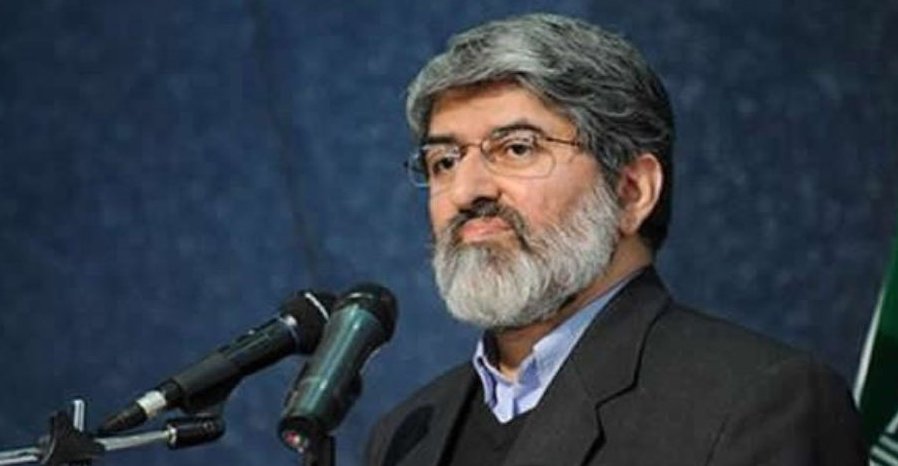Celebrating Nowruz is prohibited
Unfortunately, most Islamic countries have forgotten about the Gaza issue, and in Iran, everyone is busy with Nowruz during these days. In general, everyone has forgotten about the Gaza issue. In my opinion, due to the injustice done to the people of Gaza, we should not celebrate the holiday at all.
Mr. Ali Motahari said these words, which in the recent election round, contrary to before, his qualification was approved, perhaps to increase participation rates because it was clear that with his cultural views, he was not able to attract the votes of the gray areas of society and change the structure. He did not have the fortune of success, and of course, he himself had declared that he is not a reformist. This writing aims to examine Mr. Motahari’s claims from 9 perspectives and refute them.
What attacks Israel launched on Gaza before and after Nowruz started from mid-Shahrivar 1402, which is about 6 months before Eid and Nowruz 1403. This means that during Nowruz, there was no action to condemn or stop it. If you had an idea or plan about Gaza, you had 5 and a half months before Eid, and of course, if, God forbid, it continues, you have it after Nowruz as well, and Nowruz never stops you. This field and this arena unless your unique idea turns the holiday into mourning.
The two identity celebrations, No Ruz and mourning, have said that we shouldn’t celebrate this year at all. This statement shows their lack of understanding of No Ruz, viewing it only as a festive occasion in contrast to mourning. While No Ruz is an identity celebration that many Iranians insist on preserving, even though our ancestors embraced Islam, they did not abandon their cultural identity. We uphold our cultural independence, heritage, and continuity.
Ali Montazeri’s perception of No Ruz, however, is seen as childish joy against mourning. This perspective may stem from his ideological view and limited cultural studies, focusing on reading ideological works, especially those of his late father, who is also an exclusive publisher. It is better for them to become familiar with other cultural aspects of this land, especially the most important one, which is No Ruz, as reflected in the brilliant article by Dr. Parviz Natel-Khanlari, published in the same year as his birth in the SOKHAN magazine in 1957. The conversion of Iranians to Islam apparently severed their ties to their long and glorious past. Everything in this country changed, adopting a new color of religion and tradition.
Whatever signs and memorabilia of the past were burned in the fire and vanished into thin air, but the memory of the bygone days rose from the ashes like a phoenix and took flight in the Iranian air. More than Iranians adopting foreign colors, foreigners became Iranian, donned Iranian attire, embraced Iranian customs, held Iranian celebrations, and knelt in reverence before the Iranian God.
Let’s pass over great figures like Ferdowsi, who seemed to embody the revival of the Iranian spirit in one person. Others, who outwardly showed no signs of fervor and movement, all harbored a fiery passion for the love of Iran beneath the ashes. A Muslim clergyman who considers ancient Iran as fire-worshippers and dislikes their rituals, where he narrates the story of justice of the Sassanid king, Hormoz, expressing his regret and pain for Iran’s past history and saying, ‘The world became so heated with fire-worship that now, from this Muslim faith, you should be ashamed.’
In the scorching heat of Azadi Stadium, a heated debate about Gaza and Israel took place just yesterday, 7 Farvardin 1403, where a grand celebration of the birth of the Imam of the Second Shia was held. What is their stance? Shouldn’t Shia Muslims celebrate for Imam Mahdi because of Gaza, or is only Nowruz on their minds?
It is also incorrect to claim that Islamic countries have forgotten the issue of Gaza, as on the very day they made this statement, Qatar was actively mediating for a ceasefire.
The importance of the Haft-Seen table on the war fronts during Nowruz is so significant for our people that Abolqasem Khazali’s efforts to replace Eid-e-Ghadeer with Nowruz have never succeeded, and fortunately his children are not pursuing it. Mr. Mohtashamri, of course, is not seeking a replacement and has only mentioned it for this year, but the issue will be raised by others even though it is doomed to fail.
In Iranian culture, when someone is mourning, they visit them during Eid and say it is their first Eid, meaning they do not cancel the holiday. The person in mourning should understand this.
The current dilemma for Ali Motahari is that he cannot detach himself from the cultural shackles he has entangled himself in, while the cultural atmosphere of society has completely changed. This is evident in the way women and girls dress, as well as in the sincere complaints of Sadegh Kouchaki regarding people’s behavior during this year’s Ramadan. Kouchaki’s criticism is not a problem, but Mr. Motahari, who considers himself the voice of the people, should be more careful and not be critical of the people.
Under the pressure of inflation, Ali Motahari should not think that people are very happy. All this traveling is actually more like moving around on roads to visit relatives and hometowns. Otherwise, with these prices, many Iranians are deprived of staying in hotels and eating at restaurants, and they are not truly happy. The appearance of happiness is put on, and with this perspective, Mr. Motahari’s meaning is fulfilled. Instead of these words, they should have set up four proper accommodation places. Mourning the Eid is not art; cheering up sad and distressed people is art.
When Peyman Jebeli and Vahid Jalili also come up short and the media is shaken, what does Ali Motahari say? Just imagine if mourning was announced for Eid 1403 and TV broadcast elegies from morning till night. People would wear black clothes and cry and mourn in front of the TV or switch to other channels. With this perspective, Ali Motahari’s idea is not compatible with security interests because if people watch domestic TV in the Eid atmosphere, they may end up watching news about Gaza in the subtitles. But Jam-e-Jam, Shabakeh Yeke, and Iran International do not do this.
We return to the article of Dr. Natalie Khanlari, who, 60 years ago, was the Minister of Education of the current knowledgeable and cultural steward of Iran’s children. Which other nation do we know that is more attached and loyal to its ancient history, traditions, and customs than its past? The celebration of Nowruz, which has been established in this land with all its rituals and customs for two to three thousand years, is it not a sign of the stability and perseverance of Iranians in preserving their national customs? Nowruz is one of the symbols of our nationality. Nowruz is one of the days that manifests the Iranian spirit. Nowruz is the evidence of the claim that Iran, despite all its aging, is still young and powerful.
Persian
مشاهده این مقاله به زبان فارسی


